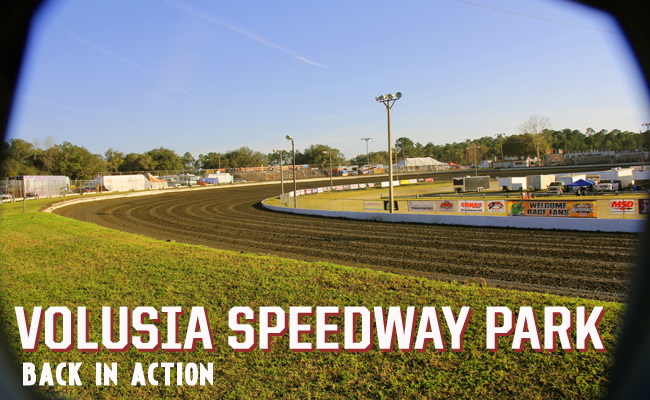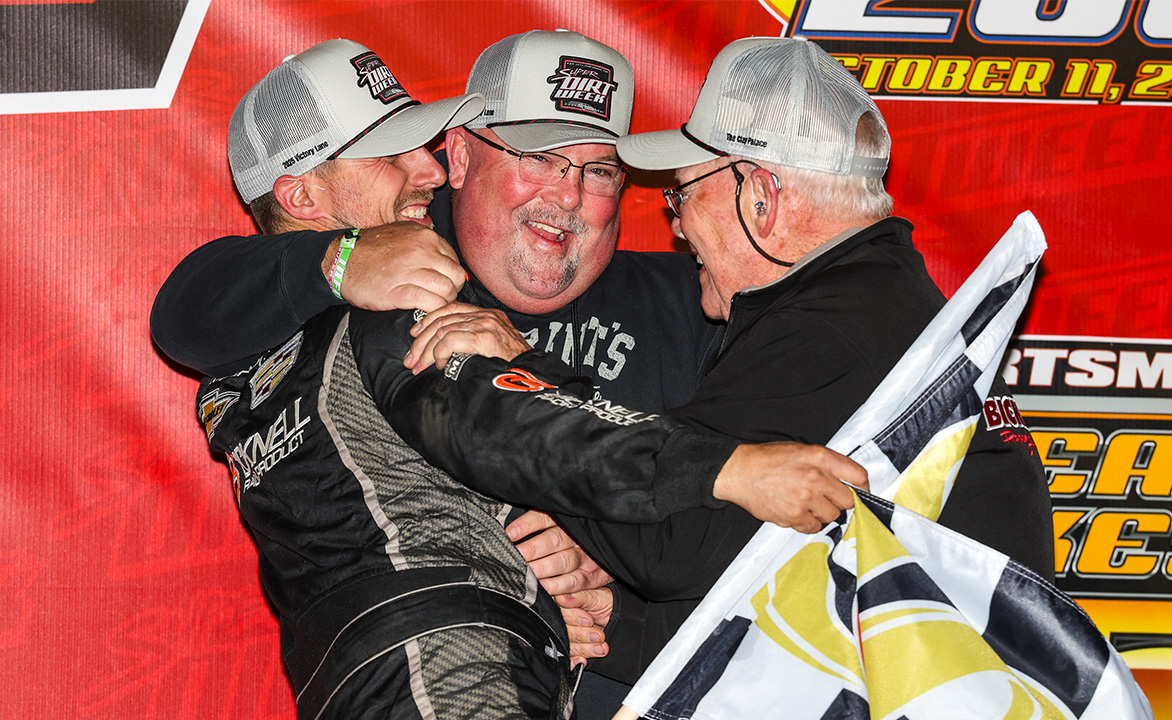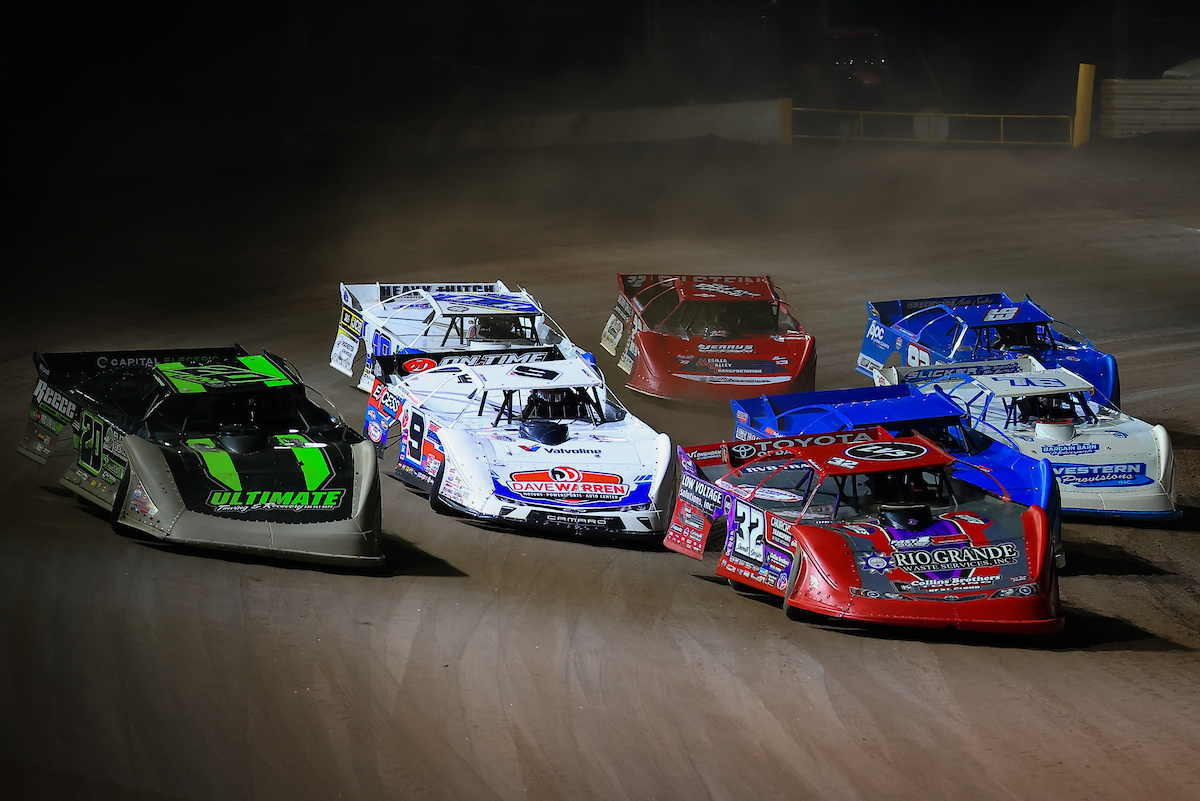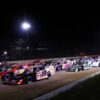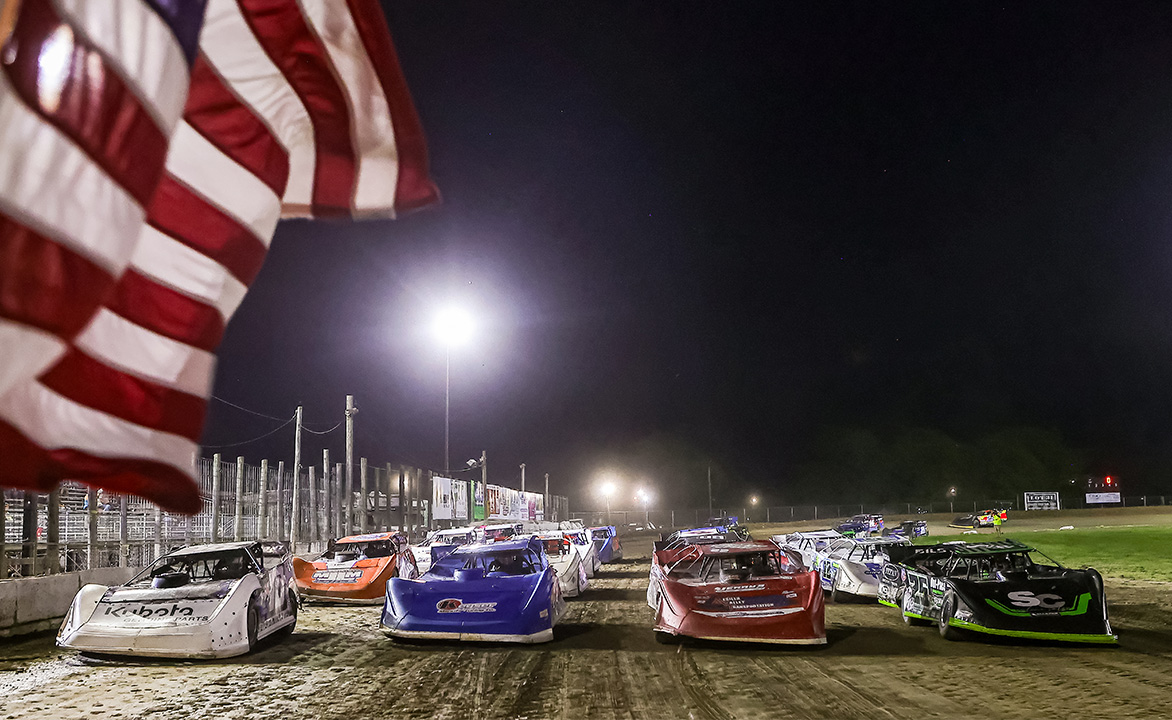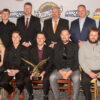CONCORD, N.C. – Nov. 9, 2016 – DIRTcar Racing and the World of Outlaws will officially adopt the Unified Dirt Late Model Council’s technical and driver personal protection specifications, adding them to the rule books for the World of Outlaws Craftsman® Late Model Series, DIRTcar Late Models and DIRTcar Pro Late Models.
The Council’s sanctioning body committee met in October to develop unified specifications for all Council members, including the World of Outlaws, Lucas Oil Series, MLRA, Ultimate Series, Southern Nationals Series, AMLS, MARS, DIRTcar Racing and Eldora Speedway. All dirt late model sanctioning series will be encouraged to adopt the specifications effective January 1, 2017.
The adopted specifications, detailed in the below bulletin, will be integrated into the 2017 General Rules and Specifications. This includes fuel cells, battery and electrical systems, wheels and wheel discs/covers, and personal safety equipment such as drivers’ gloves, head and neck systems, seats and fire suppression.
In addition to the outlined technical and driver personal protection specifications, the Council will meet at PRI in December to address weighted suspension components, rear end construction materials and axels. Specifications for these components will be released after the December meeting.
DIRTcar Racing and World of Outlaws continue to work with their partners to ensure the safety and consistency of its cars and drivers, and to solidify the sport in all its facets.
THIS DOCUMENT IS INTENDED AS A GUIDE TO THE UNIFIED LATE MODEL COUNCIL RULES, RULE ADJUSTMENTS, RULE ADDITIONS, REFINEMENTS, AND ADDENDUMS.
Please note: The bullet points of this bulletin will be applied to each Series’ individual rule book, amending the applicable rule section or in some cases creating a new section.
LATE MODEL TECHNICAL BULLETIN
Effective January 1, 2017
Fuel, Fuel Cells, Fuel Systems:
An approved fuel cell must be used at all times.
The only fuel cells that are approved are those that meet and/or exceed the FIA / FT3 specifications.
Fuel cells must be used in accordance with the FT3 specifications. Alterations of any kind will not be permitted. (Example: alterations to top plate, alterations or removal of foam, etc.)
Fuel valve plate, fuel pickup and fuel return fittings must be on the top of the fuel cell.
Fuel cells that are not contained within a welded steel tubing “rack” must have two (2) equally spaced steel straps that measure two (2) inches wide by 1/8 inch in thickness that completely surround the fuel cell. The straps must be bolted to the frame. Longitudinal (front to rear) orientation is recommended for strap mounting.
Willy’s Carburetor roll over plate part # WCD4000 is approved for competition.
Electrical Systems, Batteries, Electrical Accessories:
The battery must be securely mounted with positive fasteners and brackets.
The battery terminals must be insulated or enclosed with a non-conductive material that will prevent contact with any part of the race car should the battery become dislodged from the battery mount.
One (1) mandatory battery disconnect switch must be installed on the rear deck, behind the driver seat, in a location that is easily accessible from outside the race car. The switch must be clearly labeled with off/on direction. The switch must be directly in-line with the NEGATIVE battery cable and be capable of completely disconnecting the NEGATIVE terminal of the battery from the race car. Negative or “ground” wiring connections must not be made anywhere from the battery negative terminal to the input side of the disconnect switch. An additional battery disconnect switch within the drivers reach may also be used.
Wheel, Wheel Discs, Wheel Spacers:
Only aluminum wheels will be permitted.
Only approved wheel discs will be permitted. Approved wheel discs are wheel discs that are fastened to the wheel using a minimum of three (3), 5/16 inch diameter magnetic steel hex head bolts. The use of wheel discs with any other type of fastener will not be permitted.
Only aluminum wheel spacers will be permitted.
Personal Safety Equipment:
Drivers must wear gloves at all times they are on track, during practice and competition.
Driver’s gloves must meet or exceed the SFI 3.3 specification and have a legible and valid SFI 3.3 label.
Drivers, at all times they are on the track, must have their helmets correctly (following manufacturers installation and use instructions) connected to an approved head and neck restraint. The head and neck restraint must be SFI 38.1 approved and display a legible and valid SFI 38.1 label.
Race Car Installed Safety Equipment:
A. Seats
All racecars must be equipped with a complete driver full containment type seat with head rest and head surround. All seats must meet or exceed the SFI 39.2 specification and display a legible and valid SFI 39.2 label.
Seats must be used as supplied and instructed by the seat manufacturer with the exception of trimming the length of the left side head surround for the purpose of egress only. If the left side head surround is trimmed to a distance that is less than the most forward surface of the drivers helmet (usually the area crossing the chin) then a left side head net meeting the SFI 37.1 must be installed with a quick release latch.
Seats must be mounted to a seat frame that is welded to the racecar frame/roll cage structure. Attaching points, angles, and materials for the seat frame and mounting of the seat to the seat frame must be in accordance to the seat manufacturer instructions.
B. Fire Suppression
All racecars must be equipped with a thermally deployed automatic fire suppression system. The fire suppression system will consist of a DOT approved cylinder manufactured from aluminum or steel with a capacity of ten (10) lbs. of fire extinguishing agent, steel or steel reinforced lines, and two (2) thermally activated discharge nozzles.
All systems must meet or exceed SFI 17.1 specifications.
Systems must be fully charged with ten (10) lbs. of DuPont FE-36, 3M NOVEC 1230, or Fire Aide and display a legible and valid SFI and manufacturer label depicting fire extinguishing agent, capacity, and certification date. Cylinders that or beyond useful certification date must be inspected, serviced and re-labeled by the manufacturer.
Cylinders must be mounted forward of the fuel cell. Cylinders must be securely mounted to the frame/roll cage assembly. The certification label must be unobstructed and easily accessible for inspection when the mounting is complete.
The cylinder must be connected to the nozzles with steel or steel reinforced lines.
Two (2) thermally activated nozzles must be used. One (1) nozzle must be located directly above the fuel cell in the fuel cell area and the second nozzle must be located in the driver cockpit area.
An optional manual override cable may be added to the system.
As agreed by the Unified Late Model Council – November 5, 2016 rev.3


